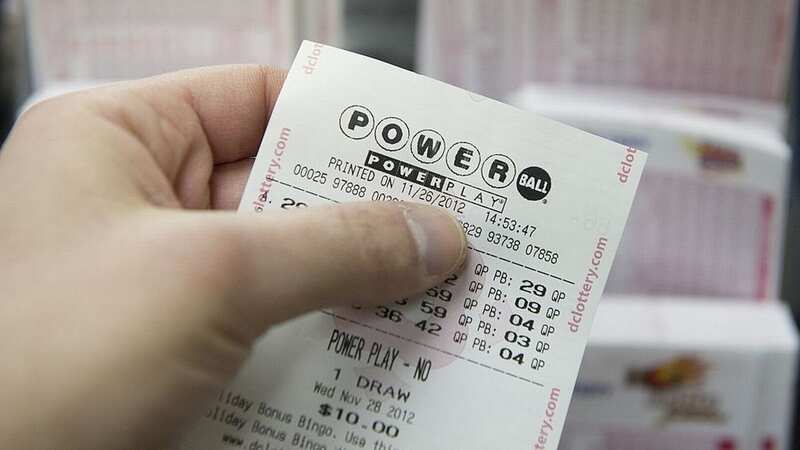Little-known rule may cost you big chunk of lottery win - but with silver lining

Lottery winners have been told of a little known rule that could cost them nearly half of their prize.
Anyone who scoops a jackpot has two ways to collect their winnings. They can either receive them in a lump sum or choose annuity payments for the next 29 years.
However, there are pros and cons to both of these options. While annuity payments can save on taxes and help players avoid becoming bankrupt, they do also mean having to remember to claim your winnings every year when you file taxes.
So which should you choose? Some financial advisors recommend taking the pay cut, choosing a lump sum. One winner who made that decision was Ashley Smith, from Mason County, Kentucky, who won the Bank Buster, an online lottery game, last week.
 Ashley Smith, from Mason County, Kentucky, decided to take the lump sum - but lost nearly half of her winnings (Kentucky Lottery)
Ashley Smith, from Mason County, Kentucky, decided to take the lump sum - but lost nearly half of her winnings (Kentucky Lottery)She cashed in a cheque for $160,409 (£126,200), after taxes. This meant that she took home just over half of their jackpot, however. She and her family are planning to put the money to good use, and have decided to spend the majority of their winnings on bills
 Woman was 'adamant' she would win top lottery prize - then pockets $200,000
Woman was 'adamant' she would win top lottery prize - then pockets $200,000
Every state and lottery company has its own rules when it comes to lottery payouts, says online insurance agency The Annuity Expert.. It explains: "When deciding whether to take a lump sum or an annuity payout, taxes play a major role in the decision process.
"The advantage of the lump-sum option is that the tax owed will be calculated as it stands at the winning time. After paying taxes on this amount, winners are free to spend or invest as they see fit. Some people might choose to get an annuity because they are betting that they will not have as much money to pay taxes in the future. This is because there is uncertainty about how much money will be taxed at what rates in the future."
Annuities help you to budget your spending by getting a regular, guaranteed income. You will also not have to pay lots of money in one lump sum, and will not have to pay more taxes over the years if you invest your funds.
Legal expert Andrew Stoltmann points out that one-third of winners go bankrupt. He said at least 90 per cent of lottery winners take the lump-sum payment which he says is the first, and worst, mistake a winner could make.
He told the US Sun that a lot of winners don't have the "infrastructure" to handle such large quantities of cash. He said it has a lot to do with financial education and the socioeconomic background of lottery winners - which he says tends to be lower.
"So they then take this massive sum of money and they just don't really know what to do with that," he told the outlet. However, the annuity choice will not grow as fast as the lump sum if you invest it.
The winner's estate could also be slapped with a large bill on their inheritance, while money from the lump sum will be available to pay those taxes. Concluding its findings, The Annuity Expert recommends always seeking financial advice.
It says: "So, what’s the best option for you? If you are lucky enough to win a large lottery jackpot, it’s important to understand the tax implications of each payout type. The lump-sum option may seem attractive at first because of the big payday, but you would only get about half of that money if you choose this route.
"The annuity payout is less exciting upfront, but over time you will receive all of your winnings and pay much less in taxes. It’s always important to consult a financial advisor before deciding on major life changes like winning the lottery."
Read more similar news:
Comments:
comments powered by Disqus

































